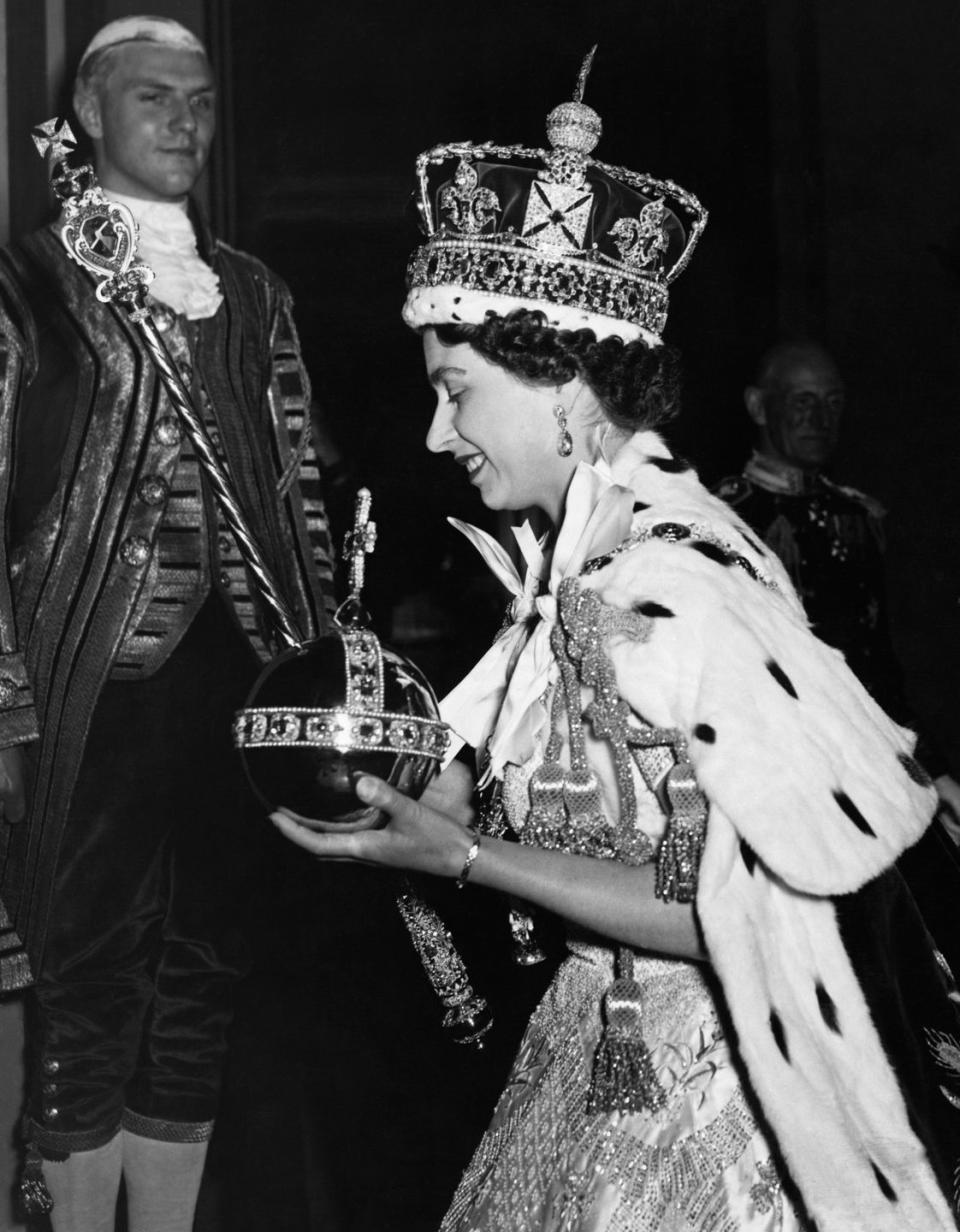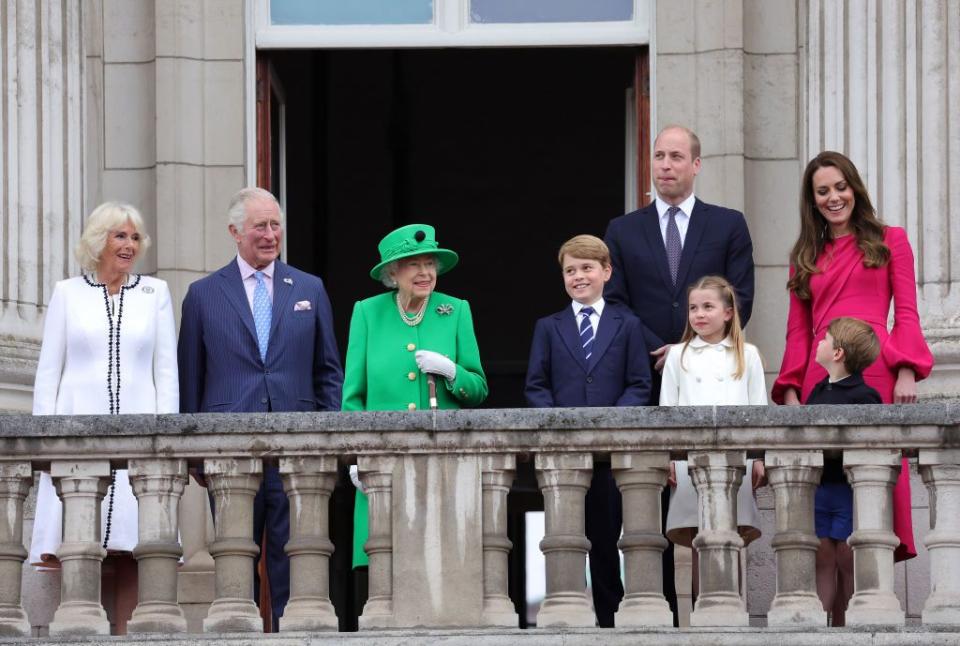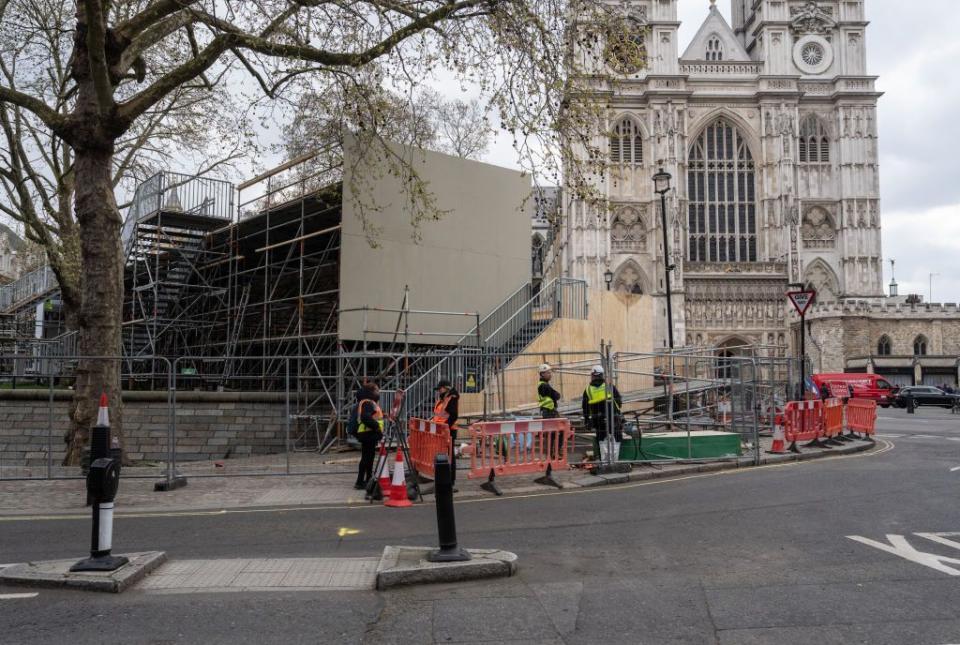There Is an Uncertain Mood in the UK as We Approach King Charles’s Coronation
When Queen Elizabeth was crowned in 1953, it is easy to see how the moment became of focal point for public joy. In a post-war era when people were seeking unity, stability and a reason to celebrate more than ever - and at a time when attitudes towards monarchy were more deferential - the idea of a grand royal occasion was the perfect tonic.
At 27, the young Queen, reigning after a run of four kings, represented something progressive simply by being female in a world dominated by male leaders and figureheads. Her coronation was the first to be televised and many crowded around newly-purchased TV sets as three million people lined the streets of London.

As we approach her son’s coronation 70 years later, the mood is different. Wartime rationing may be a thing of the past, but a cost of living crisis gripping the UK has implications for how people might react when the lavish taxpayer-funded display of pomp and pageantry makes its way through town on May 6. Republicans who have trailed King Charles’s latest engagements, having identified that this is the time to step up campaigning for an elected head of state, have pledged to make themselves seen and heard on coronation day. And conversations around Britain’s colonial past will be sparked by the prominent presence of the Cullinan Diamond in several of the Crown Jewels. It was found in a mine in South Africa in 1905, bought by the colonial government as a gift for Edward VII, and has been the subject of petitions to send it back.
The coronation will be the first big test of King Charles’s reign on the world stage and the first ever to be broadcast in the full glare of the internet age when social media gives everyone a chance to be heard. For seven decades, moments of royal pomp and pageantry were underpinned by the presence of Queen Elizabeth, who by the end of her reign enjoyed a completely unique position in people’s hearts and minds. Her popularity survived largely unscathed throughout the repetitional damage done by Prince Andrew and the significant criticism that was leveled at the institution after Prince Harry and Meghan’s departure.

But the impenetrable bond between the public and the late Queen did not extend to the monarchy as a whole, so where does that leave King Charles? Recent polling suggests that he has some reason to be concerned. A YouGov poll commissioned by BBC’s Panorama found that, while there is 58% of support for keeping the monarchy across all ages, this falls to 32% amongst 18 to 25-year-olds. More of this age group (38%) want an elected head of state. Some 45% across all ages think the King is out of touch with the public and a majority of 58% said they are not interested in the royal family. A separate survey in April of more than 3,000 British adults found that the majority said they didn’t care about the coronation either very much or at all.
But a much bigger problem than indifference for the royals is the sense that they have a poor record when it comes to racism and unconscious bias. The Panorama poll showed that 49% of people who would describe themselves as being from an ethnic minority believe that the royal family has a problem with race. Efforts to change these perceptions were landed a blow last November when Black charity founder Ngozi Fulani shared her experience of being repeatedly asked where she was from by Palace aide Lady Susan Hussey during a Buckingham Palace reception. The Palace has also admitted they could do better when it comes to employee diversity and pledged to improve.
As a 74-year-old white male who has inherited his position, King Charles cannot claim to represent progressiveness himself. But it’s clear that he is trying to send a message with this coronation that he is committed to using his time as King to preside over a progressive institution. Aristocrats have been left off the 2,000-strong guest list while the general public has been invited in, with 450 people who have served their communities landing seats in Westminster Abbey. The line-up of people taking part in the ceremony also puts the diversity that exists in Britain today front and center. In stark contrast to 1953, several women and people of different ethnicities and religions have prominent roles in the service.
The liturgy has also been modernized, with Charles declaring at the opening of the service that he has come "not to be served, but to serve." An explanation has been put before his Oath to uphold the Protestant faith that this should be interpreted as a desire to "foster an environment in which people of all faiths and beliefs may live freely." The homage, traditionally of hereditary peers, has been replaced with a Homage of the People, where everyone inside and outside the Abbey is invited to swear allegiance to the King. However, while commentary in the liturgy describes this as a "new and significant moment" and an "opportunity" for the general public, the idea of declaring allegiance to the sovereign and his heirs has already been received with mixed reviews.

The fundamental rituals of the coronation itself have remained largely unchanged for hundreds of years, and this is undoubtedly a subject of intrigue if not fascination. As stands are constructed outside Buckingham Palace for veterans and NHS workers to watch from, and screens are erected in royal parks, a sense of occasion is beginning to mount. Many people are familiarizing themselves with the six parts of the coronation service and many are trying out the recipe for coronation quiche.
However, unlike when Queen Elizabeth was on the throne, there is a sense that the mood towards a grand royal occasion of this kind is more uncertain. Other European monarchies have significantly scaled down or done away with this kind of investiture. The fact that Britain has retained it is a source of pride for many, but this is its first test in the modern era.
As the public lines the streets this weekend, whether it be to show a rousing support for the monarchy or out of curiosity for this unique moment in history, they will be treated to a display that no-one has seen for 70 years. The monarchy has a lot to gain or lose from whether they come away feeling like they have witnessed a powerful showcase of Britain today, or something that belongs in the past.
You Might Also Like

